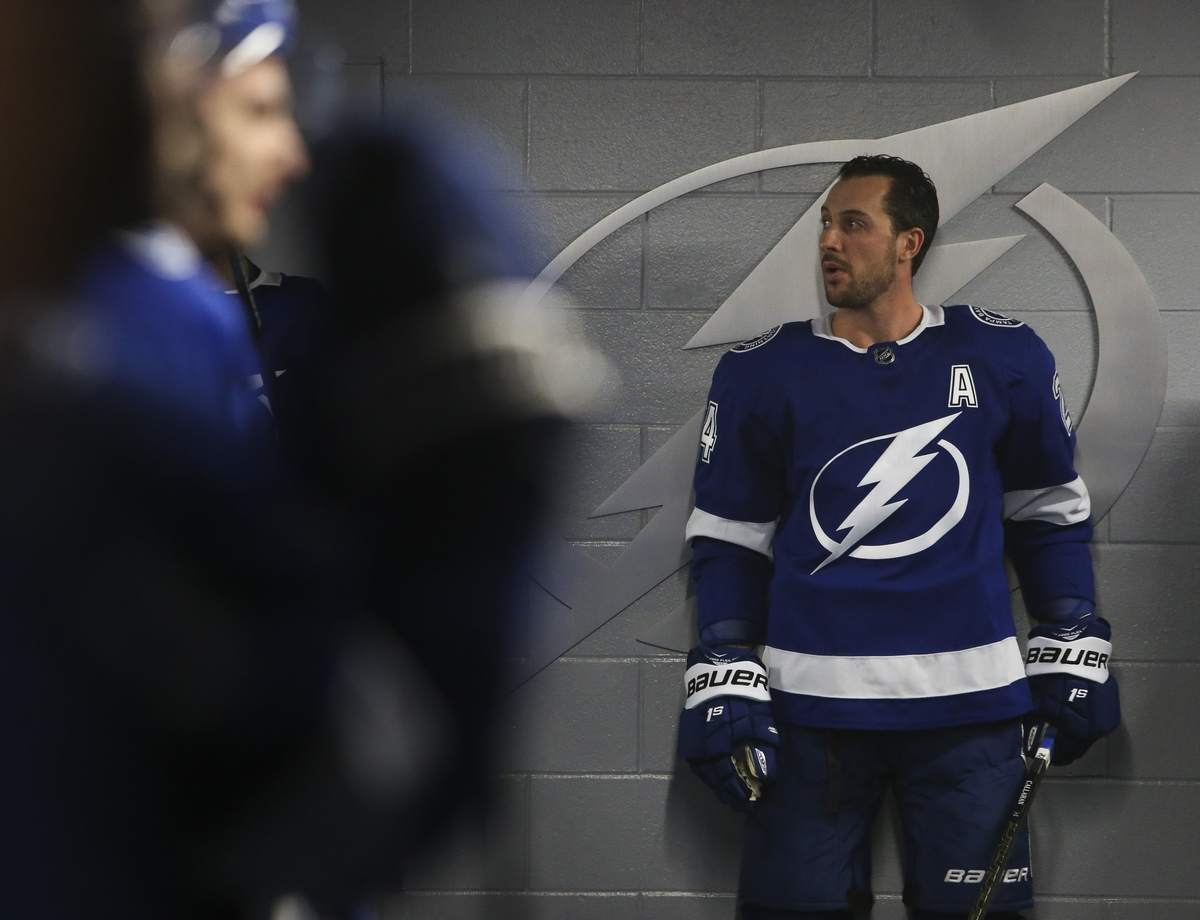- USF Takes Alabama To The Limit In 17-3 Loss
- USF, McClain Roll To First Win of the Season
- Bobby Bowden dies: Legendary coach built Florida State into college football powerhouse
- ECU hammers USF for first win of season
- Mike Brosseau’s HR off Aroldis Chapman Lifts Rays Past Yankees in ALDS Game 5
- Tom Brady Purchasing $7.5 Million Mansion
- Tampa Bay Buccaneers DT Vita Vea has broken ankle, likely out for season
- Tampa Bay Lightning have placed Tyler Johnson on Waivers
- USF football excited to bring fans back to Raymond James Stadium this weekend
- Tampa Bay Lightning Win Stanley Cup
Lightning’s Ryan Callahan placed on long-term injury reserve
- Updated: June 20, 2019

Ryan Callahan will not realize his ultimate dream. He has to hang up his skates without having won the Stanley Cup.
Every player wants to end his career on his own terms, but Callahan did not get that option. Doctors advised he no longer play professional hockey due to a degenerative disc disease of the lumbar spine.
The Lightning will put Callahan on long-term injured reserve for the final year of his contract, which will alleviate some of the team’s salary cap issues.
Hearing the doctors’ recommendation was shocking for Callahan, who had planned to play for a few more years and wanted his name on the Cup.
Callahan’s back issues go back a few years but previously the pain was manageable. This year, it became unbearable.
“It was literally taking it day-by-day, seeing how I felt when I woke up,” Callahan said. “If it’s a game day, you just try to keep it loose as possible and hope nothing happens. Sometimes it did.”
The first his back problems became known was when he missed two games in December. Callahan’s back locked up on him during warmups in Vancouver. At the time, he said it usually took a day or two to settle down.
The same problem cropped up a few more times over the course of the season, including pulling Callahan out mid-game in the regular-season finale and then causing him to miss the first two games of the playoffs.
Callahan underwent tests during the year. He and the medical staff were constantly trying new things to address the stiffness he felt.
“I truly thought there could be a solution,” Callahan said.
He plans to address the issue with physical therapy and doesn’t need surgery but doesn’t expect to return to the ice. This is something he’ll need to manage for the rest of his life, but out-of-season, Callahan said he mostly feels fine day-to-day. He has no problems playing with his three kids.
He and his wife Kyla had to figure out how to tell their kids that Daddy won’t play hockey anymore. Only his oldest, 7-year-old Charlotte understood. She was sad, until Callahan told her he’d be around more often, then she wore a big smile.
The doctors didn’t say, but Callahan figures this had to come from hockey. His body took a lot of hits, and delivered them, especially with Callahan’s aggressive style of play.
“It’s wear and tear of everyday use, but hockey makes it a lot worse,” he said.
Callahan’s tenure with the Lightning may have come to an end either way. He was taken out of the regular lineup after the all-star break and his big contract made him a likely trade candidate.
Now, Callahan plans on remaining in Tampa with his family at least for the next year. He’s not sure what will happen after that but would like to be involved in the organization in some form.
What does this mean for the Lightning?
Putting Callahan on LTIR does open up some cap space for the salary-squeezed Lightning. The move doesn’t simply take Callahan’s $5.8 million off the books, though.
In that sense, a trade would have been preferable (though with it’s own questions of how much cap the Lightning got in return and if it had to retain any).
The long-term injured reserve gives the Lightning the ability to exceed the salary cap by up to $5.8 million to replace Callahan.
Essentially, right now, the Lightning can add up to $11.6 million ($5.8 million of cap space plus an allowance of up to $5.8, the numbers coincidentally match and have nothing to do with each other). That number will change when the new salary cap is released.
There are a few caveats, though. The LTIR space is use-it-or-lose it. The salary cap is calculated daily and a team can save any available funds for later use. That’s why the deadline cap space can look different. The team only has to pay the remaining portion of the salary and has saved money from the first part of the year.
The Lightning likely won’t have money to pocket. Tampa Bay will have to be under the cap including Callahan’s salary in order to pocket the difference.
Using LTIR relief means the Lightning likely won’t be able to “save up” during the season, but it does mean the team has money to work with right now. That’s important to re-sign Brayden Point, for example.



